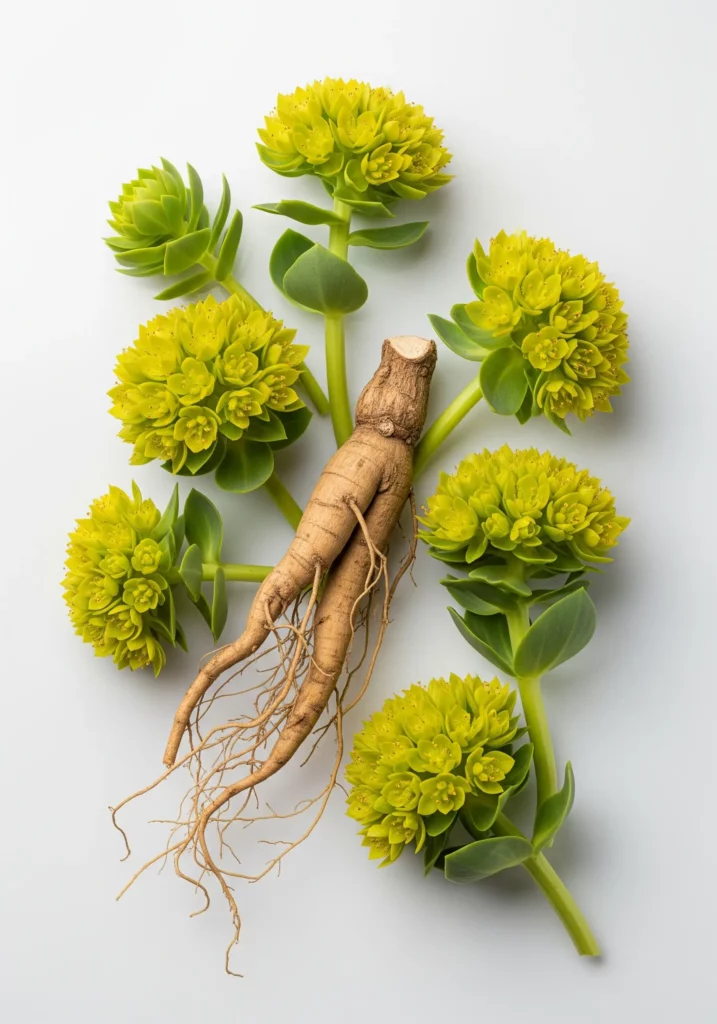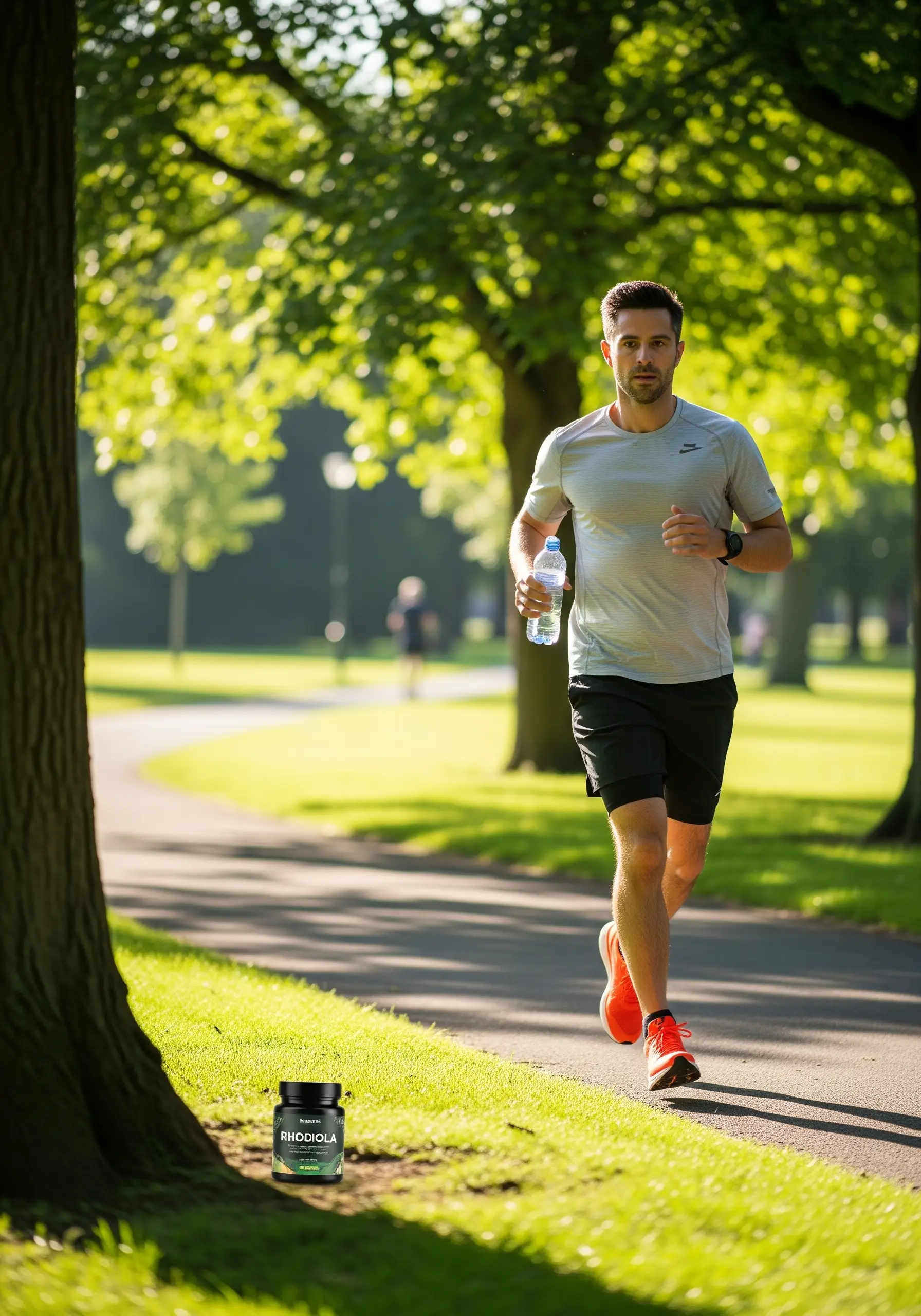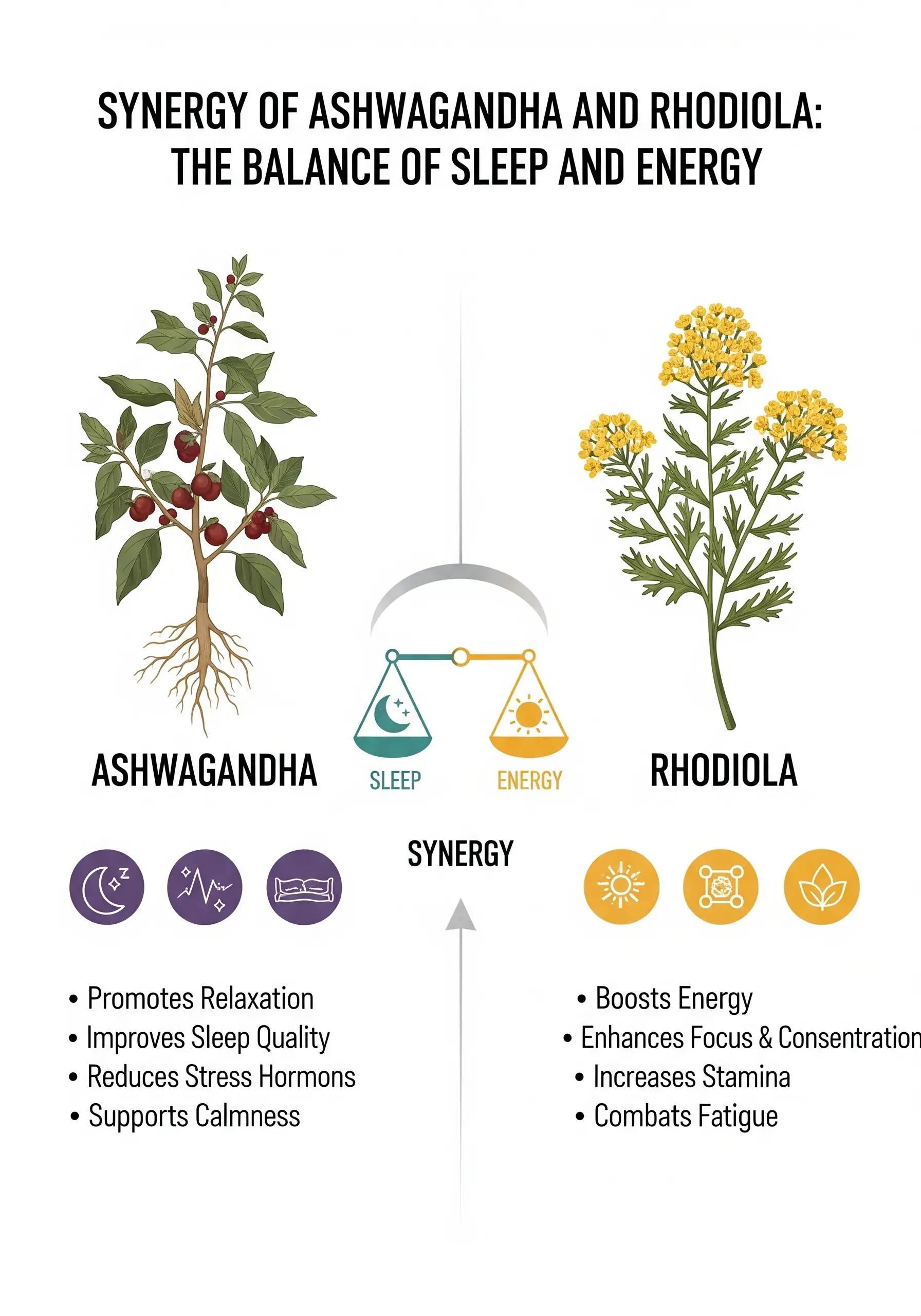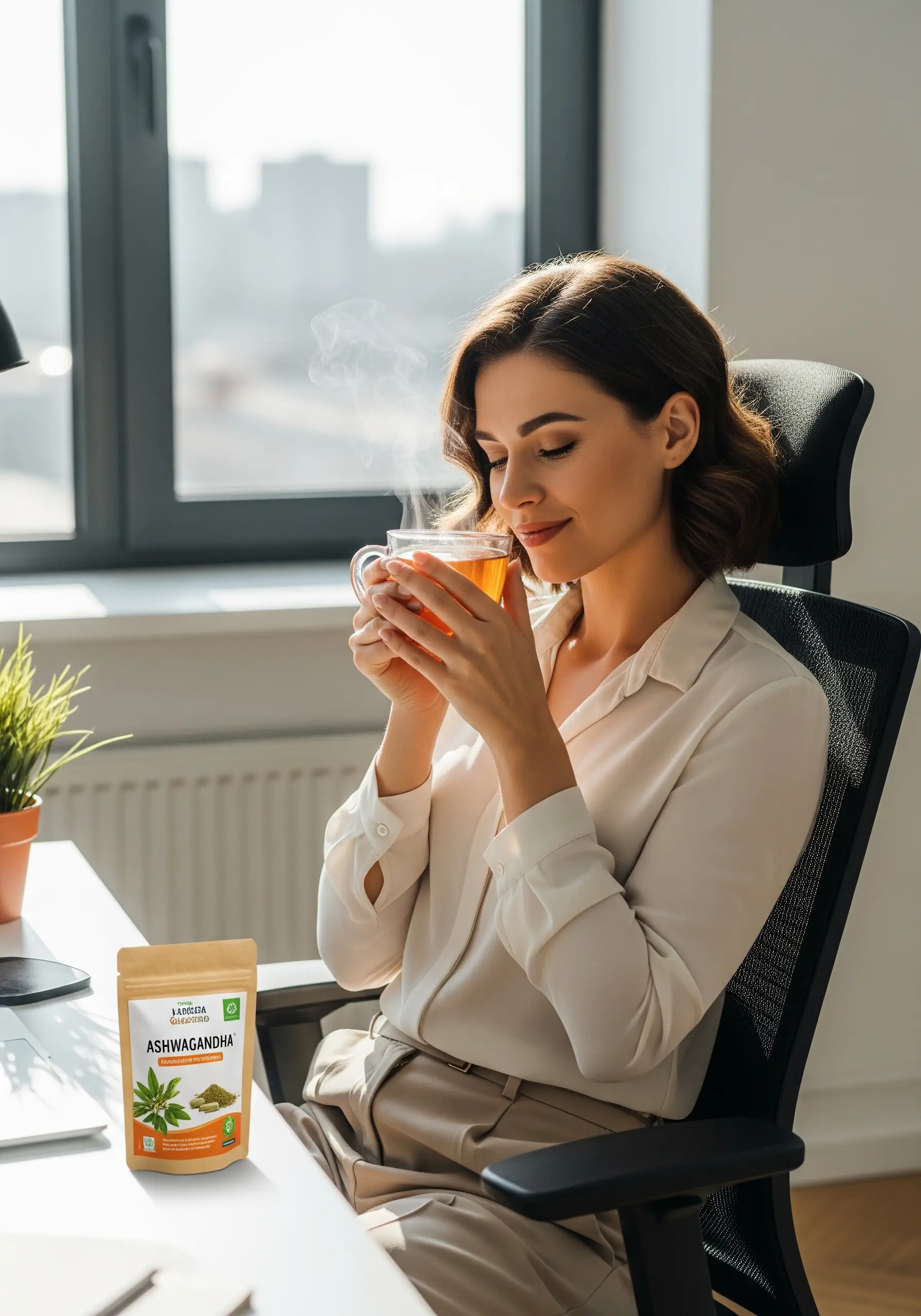

City life is constant stress: deadlines, noise, information overload, lack of sleep.
Under such conditions, even a healthy person may feel fatigue, anxiety, and decreased concentration.
One natural solution for body adaptation is adaptogens — plant extracts that help reduce the negative effects of stress.

The two most well-known plants are Ashwagandha (Withania somnifera) and Rhodiola rosea.
Modern research and practical experience show that they can work even more effectively in combination.

Ashwagandha: balance and calm
Ashwagandha is a traditional Ayurvedic plant.
-
Has a pronounced anxiolytic effect, reduces cortisol levels.
-
Improves sleep and helps recovery after chronic stress.
-
In the study Chandrasekhar et al., 2012, taking Ashwagandha for 60 days reduced cortisol levels by 27%.

Rhodiola rosea: energy and endurance
Rhodiola is an Arctic plant known for its ability to increase endurance.
-
Has a stimulating effect: reduces fatigue, increases productivity.
-
In the study Darban et al., 2015, students taking Rhodiola extract performed better in concentration tests.
-
It works faster than Ashwagandha and is better suited for use in the morning.
Table 1. Main properties of adaptogens
| Adaptogen | Main Effect | Benefits | Time of Use |
|---|---|---|---|
| Ashwagandha | Reduces anxiety, cortisol | Improves sleep, reduces stress | Evening |
| Rhodiola rosea | Increases endurance, energy | Improves concentration, reduces fatigue | Morning |

Synergy of two adaptogens
Combining Ashwagandha and Rhodiola balances their effects on the body:
-
Ashwagandha reduces tension and supports recovery.
-
Rhodiola stimulates mental and physical activity.
Together they provide comprehensive support for the urban rhythm: recovery at night and productivity during the day.
Table 2. Practical use of the adaptogen combination
| Situation | Recommended Solution | Additional Tips |
|---|---|---|
| Chronic stress | Ashwagandha in the evening + Rhodiola in the morning | Meditation, yoga |
| Intense work | Rhodiola in the morning | Breaks every 2 hours |
| Sleep problems | Ashwagandha before bedtime | Sleep hygiene |
| Students during exams | Rhodiola in the morning + Ashwagandha in the evening | Diet rich in protein and omega-3 |
| People 40+ | Combined formulas | Regular physical activity |
FAQ — common questions
1. Can Ashwagandha and Rhodiola be taken together?
Yes, they combine well: Rhodiola in the morning for energy, Ashwagandha in the evening for recovery.
2. Are there any contraindications?
Ashwagandha is not recommended for pregnant women or people with hyperthyroidism. Rhodiola should be used cautiously with high blood pressure.
3. How soon is the effect felt?
Rhodiola works within a few days, Ashwagandha gradually over 2–4 weeks.

Conclusion
Adaptogens are not just a trendy topic, but an effective tool for urban life.
Ashwagandha provides calm and recovery, while Rhodiola gives energy and focus.
Their combination creates balance, helping to manage stress and stay productive.
References
-
Chandrasekhar K. et al. A prospective, randomized double-blind study of safety and efficacy of high-concentration full-spectrum ashwagandha root extract. Indian J Psychol Med. 2012.
-
Darban F. et al. The effects of Rhodiola rosea L. on mental performance, physical capacity, and oxidative stress biomarkers. Phytomedicine. 2015.
-
Panossian A, Wikman G. Effects of adaptogens on the central nervous system and the molecular mechanisms associated with their stress—protective activity. Pharmacol Ther. 2010.
-
Lopresti AL. The clinical efficacy of ashwagandha root extract in stress and anxiety. Curr Neuropharmacol. 2022.
-
Spasov AA. et al. A double-blind, placebo-controlled pilot study of the stimulating and adaptogenic effect of Rhodiola rosea SHR-5 extract. Phytomedicine. 2000.




